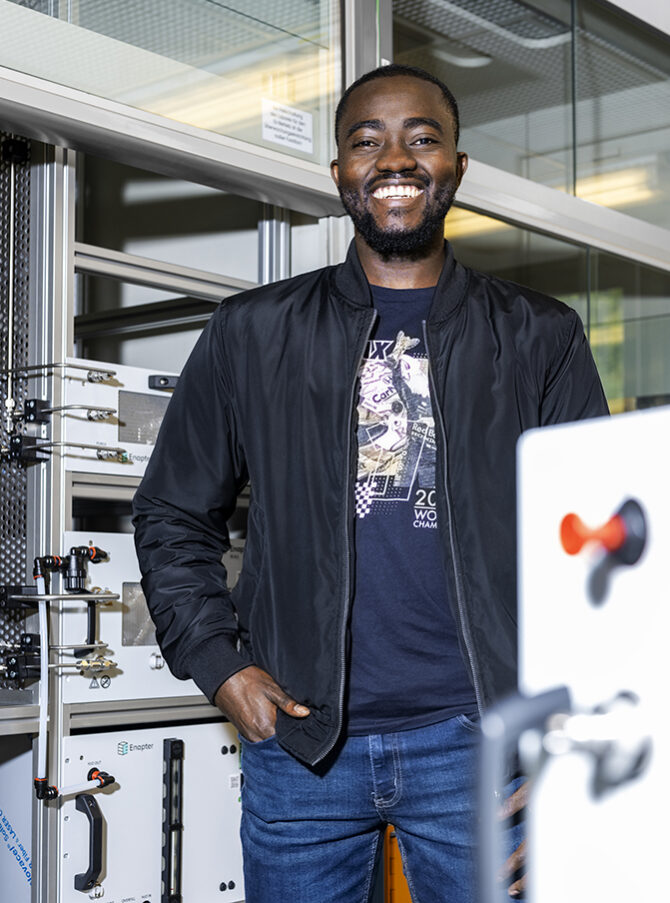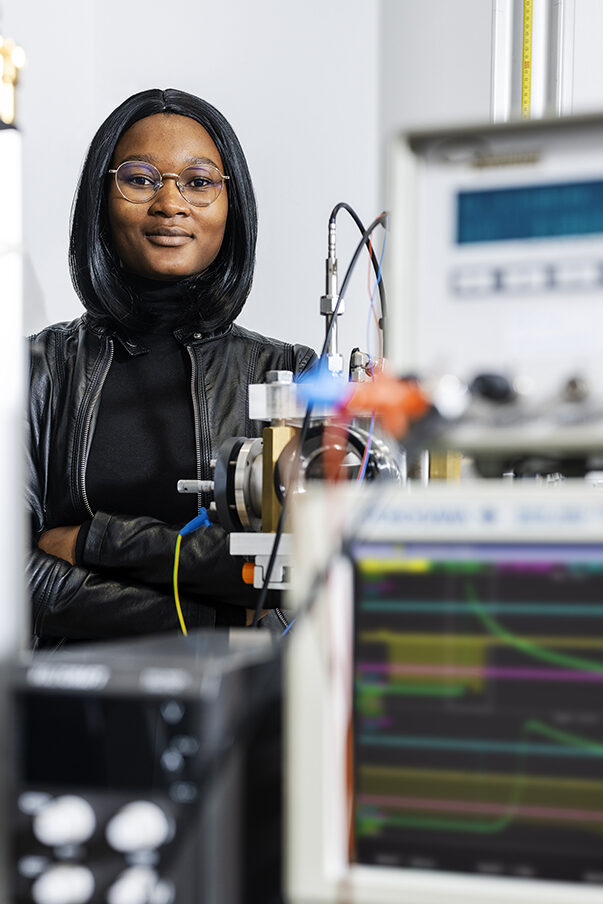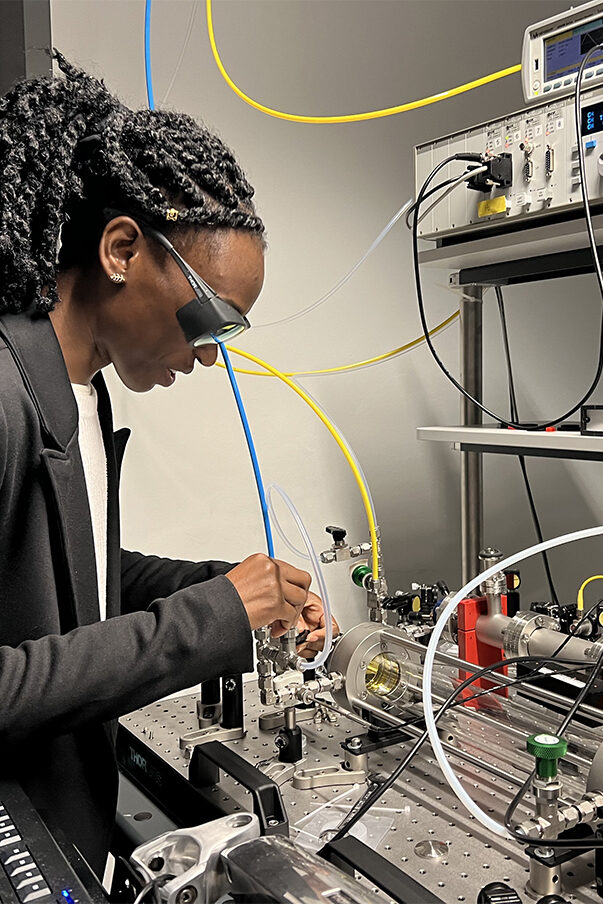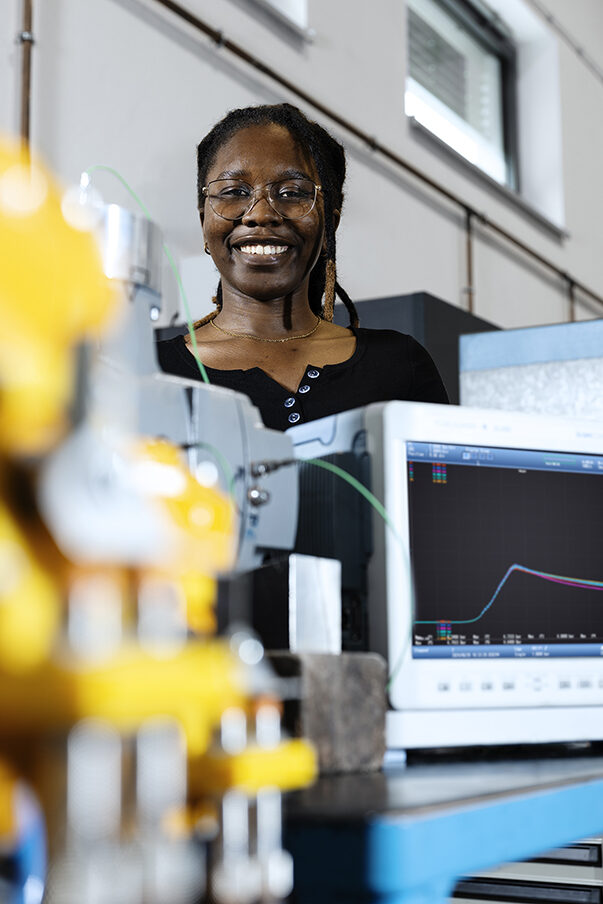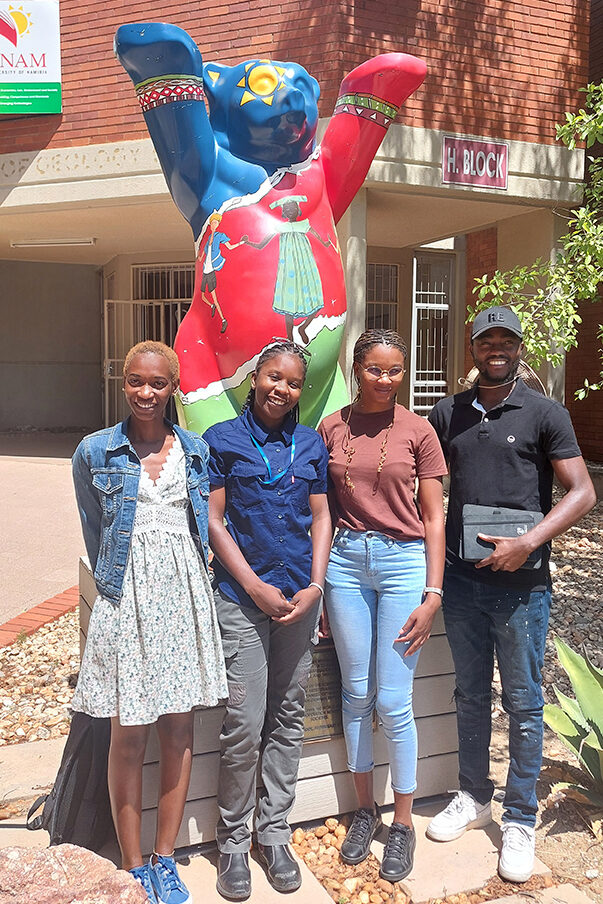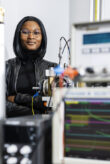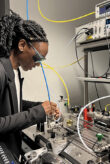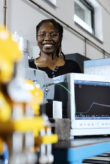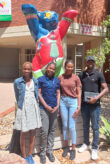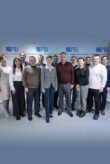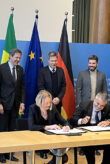Four Namibian Master’s students spent six months at the Physikalisch-Technische Bundesanstalt (PTB) in Braunschweig last year. This is what Paulus Tangeni Tjakula had to say.
We were curious to hear about Paulus Tangeni Tjakula’s impressions of Germany and his experiences while living and researching in Braunschweig. He felt that adjusting to life in Germany was relatively easy thanks to PTB’s International Office helping him arrange accommodation and sorting out other things like a SIM card and finding an internet service provider. The only challenge was not speaking the local language. Communication at work was never a problem, but there were moments, such as at the grocery store, where English wasn’t an option. One thing that was no problem to adjust to, however, was German punctuality. Having a meeting take place at the official time – rather than 15 or even 30 minutes later as could be the case in Namibia – means that things go as scheduled, which he really liked.
There were several noticeable differences when it came to food. Paulus realized just how much beef is a staple of his diet at home. It wasn’t always easy to find it on the menu, plus he had trouble deciphering the cuts of meat when trying to buy it. And he had no luck finding a specific type of maize flour for cooking pap or porridge, not even with help from Moritz Ackermann. He noticed that Germans, on the other hand, eat a lot of bread and “Kartoffeln”, he says with a laugh.
Background
Paulus was born and raised in Grootfontein, a four-hour journey from Windhoek, the capital of Namibia. Paulus’s university journey began with undergraduate studies in electrical engineering at the University of Namibia (UNAM). After receiving his degree, he worked for an engineering, procurement, and construction company for two years. With this practical experience under his belt, he headed to Stellenbosch University in South Africa to pursue his Master’s degree in electrical engineering with a specialization in renewable energy. A call for students interested in attending training for hydrogen technology came at the right time for Paulus, who was seeking ways to get back into industry. He felt very lucky to have been selected to participate and to receive a scholarship from Namibia.
We were pleased to hear that Paulus had the “best supervisors” – and not just because they were sitting in the room together! In the beginning, he didn’t know all the details about his research work, but Arne Krietsch (Head of the “Hydrogen Metrology” Working Group) cleared things up quickly. Within two weeks, he was already going on business trips and getting practical exposure to the industries related to what he was researching. Paulus valued the open and thorough discussions he had with his colleagues as well. Questioning every step opened his mind and inspired even better research. Support was also available in the form of equipment. PTB procured two electrolysers for the lab along with a laptop, measuring devices and the piping used for gases, meaning that all the equipment that he needed for his research was on hand.
Research project
The aim of Paulus’s research project was to set up a testing platform for anion exchange membrane (AEM) electrolysers. Different components and measuring devices can be integrated at varying measuring points on the platform, which means that electrolysers from different manufacturers can be tested in terms of output, production, and efficiency as well as be compared.
On a global level, there is a push to establish hydrogen technology. However, there is a lack of standardization frameworks in most of the world. Europe, and especially Germany, are pushing to establish the necessary quality infrastructure for this up-and-coming source of renewable energy. In Namibia, the Electricity Control Board (ECB) handles regulation in the energy sector and is therefore the policymaker for hydrogen energy. But testing platforms are in the pipeline at the UNAM.
After completing his Master’s degree, Paulus saw himself in industry and building a network, perhaps even acquiring partners to open his own hydrogen technology business. Paulus sees a bright future for green hydrogen in Namibia, a country which has ample sources of wind and solar energy. He would especially like to be involved in an ambitious green hydrogen project to build a 3.5-gigawatt electrolyser.
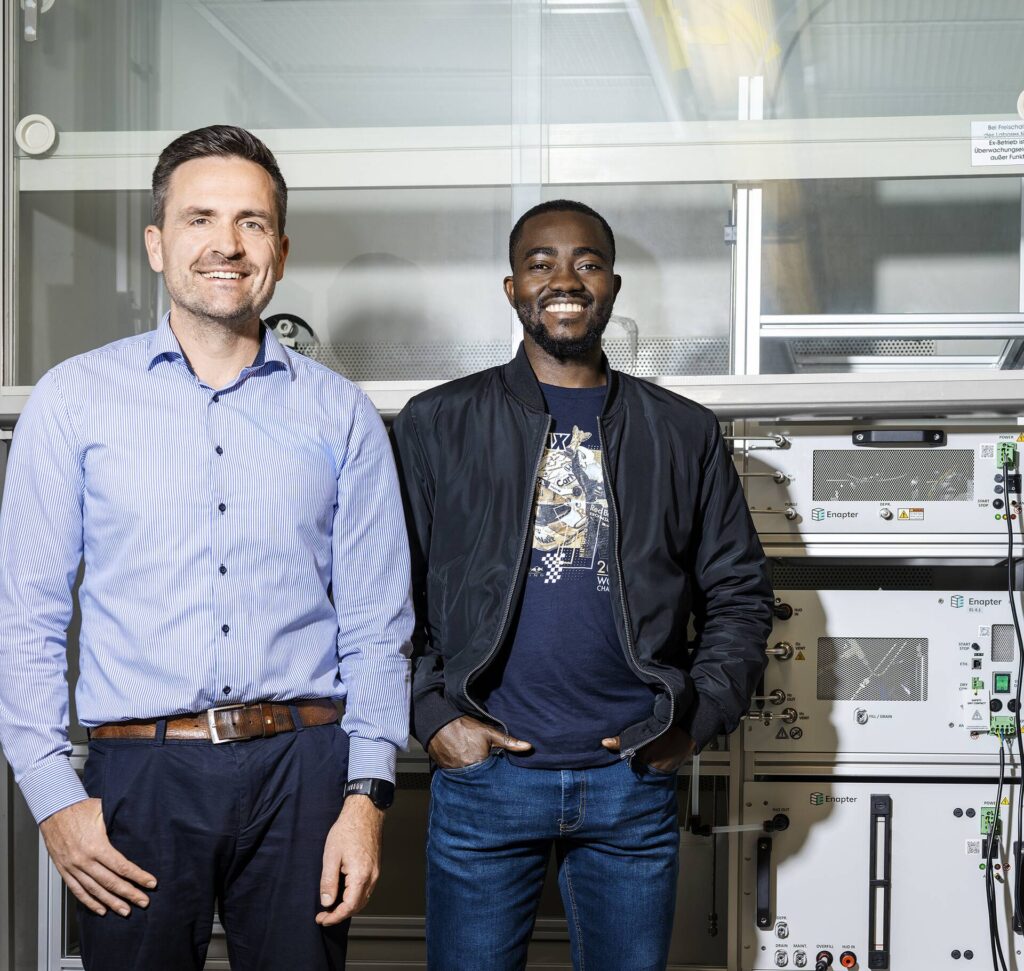
From left: Arne Krietsch, Head of the “Hydrogen Metrology” Working Group and Paulus Tangeni Tjakula, Namibian Master’s student
Paulus’s enthusiasm for hydrogen technology in Namibia is infectious. We wish him all the best for the future, and we look forward to hearing great news from his home country!
Interview conducted by Sabine Thomas, article by Lissa Moshagen
Copyright © all pictures: PTB/Stephanie Rubrecht


